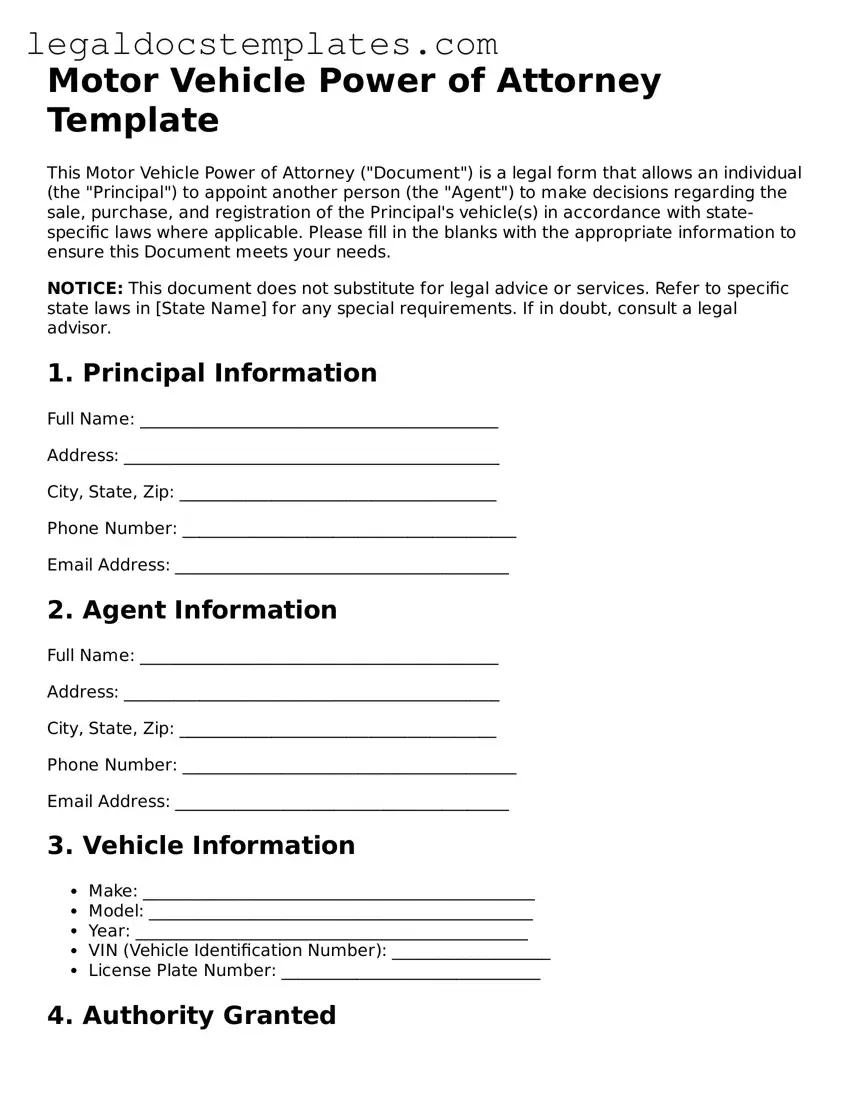Printable Motor Vehicle Power of Attorney Template
The Motor Vehicle Power of Attorney (MVPOA) form is a legal document that allows an individual to grant another person the authority to act on their behalf in matters related to a motor vehicle. This includes, but is not limited to, buying, selling, and registering a vehicle. To ensure your vehicle-related transactions are handled smoothly, consider filling out the Motor Vehicle Power of Attorney form by clicking the button below.
Access Motor Vehicle Power of Attorney Now

Printable Motor Vehicle Power of Attorney Template
Access Motor Vehicle Power of Attorney Now

Access Motor Vehicle Power of Attorney Now
or
⇩ PDF Form
Don’t spend hours on this form
Complete Motor Vehicle Power of Attorney online in minutes, fully digital.